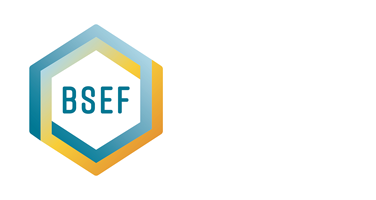On the 22nd December 2023, the Commission issued a mandate to ECHA on preparing an investigation report to gather information on all flame retardants, with a focus on aromatic brominated ones. ECHA has time until the 31st December 2024 to deliver its report which should support the Commission in a decision of whether a mandate to ECHA for the preparation of a restriction dossier is required and if so, what the scope would be. Currently no restrictions are planned and only data is being collected.
Despite the short and challenging time frame, BSEF are providing constructive input throughout 2024, including to the two ECHA ‘Calls for Evidence’. An initial qualitative socio-economic study highlights that impacts on society from a possible restriction of aromatic brominated FRs are likely to be significant and affect a wide range of products/sectors (e.g. compromising fire safety, potential for regrettable substitution, and a restriction could reduce availability of recycled material). In this respect, more information on why BFRs are essential is available in our factsheet here.
ECHA’s first Call for Evidence on aromatic brominated flame retardants closed on the 5th April 2024*. A second call for evidence – with a focus on alternatives – closed on the 28th June 2024.
Next steps
ECHA are currently working on an investigation report to be delivered by the end of 2024. Based on the outcome of this report, the Commission will decide in Q4 2024/ Q1 2025 on a possible mandate for restriction of the use BFRs in plastics and other materials.
*BSEF organised a webinar on the 22nd of February 2024 and made it clear why downstream users and industry associations should participate, and ECHA offered Practical advice for respondents.
The recording of the webinar is available here on YouTube
Background
On 15 March 2023 the European Chemicals Agency (ECHA) published its Regulatory Strategy For Flame Retardants (“Flame Retardant Strategy”). ECHA’s proposed this high-level strategy as a first step towards regulating all substances used as flame retardants given their wide use in consumer goods. The strategy outlines a vision for how regulating flame retardants could be expanded and accelerated in the EU however it’s important to note envisaged actions may change in scope before any restriction is adopted.
BSEF is supportive of ECHA’s efforts to assess chemicals more efficiently and their intention to avoid regrettable substitution. The FR strategy is an unprecedented opportunity to do so by addressing all Flame Retardants broadly and coherently. To deliver on ECHA’s efforts, the strategy must adopt a science-based and comprehensive approach towards all Flame Retardants. BSEF underlines the importance flame retardants for preventing fire risks and confirm that each substance currently placed on the market can be used safely throughout the entire value chain in their intended uses as required per REACH regulation.
The Flame Retardant Strategy has no immediate legal consequences, only outlines possible regulatory options and needs to be based on a robust, extensive and scientific assessment. Any actions identified will still require the initiation of REACH restriction process itself, which is an extensive and complex process. This process will have to take into account detailed assessment of the specific uses of flame retardants, also risk and exposure assessment, availability of alternative for the use, impact of the restriction on the society and impact on fire safety (compliance with flammability standards), and availability of goods and impacts on strategic supply chains. Furthermore, the strategy does not consider ongoing substance evaluations (SEv) where companies are providing much deeper scientific data and the outcomes are still pending.
Please see the latest BSEF statement, and position papers on the flame retardant strategy and grouping




